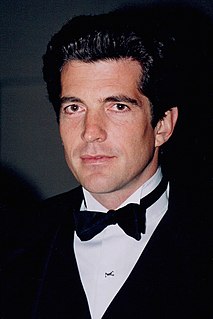A Quote by Eric Schneiderman
Transformational politics requires us to challenge the way people think about issues, opening their minds to better possibilities.
Related Quotes
Business of blurring is fantastic. They both are playing the politics of avoidance. They avoid all the issues on corporate power, Iraq, Palestine, Israel, so on and so forth. They avoid all those. That's the politics of avoidance. All the major issues that are so much on people's minds - health care, living wage, public works, jobs - they avoid.
The fallacy is that politicians don't really do much about social issues. They just demonize their opponents as elitists and reap the benefit. It's a stupid way to do politics. Economic issues can more often be addressed concretely, and it would seem logical for people to vote their interests in this area.
Everywhere I go on the campaign trail, I meet voters with a real thirst for a healthy discussion of the issues. Ultimately, people don't care whether an issue comes from the left or the right. What they want to talk about are ideas that lift America up and make us better. It's what I call 'Vertical Politics'.
Class is something that I think seriously about and try to organise my politics around. I think there are lots of novels that don't really engage with questions of class at all, and they get less conversation about issues of social privilege than I do. But it's better to try and talk about it and maybe fail.
I don't wish to defend everything that has been done in the name of Utopia. But I think many of the attacks misconceive its nature and function. As I have tried to suggest, utopia is not mainly about providing detailed blueprints for social reconstruction. Its concern with ends is about making us think about possible worlds. It is about inventing and imagining worlds for our contemplation and delight. It opens up our minds to the possibilities of the human condition.
One of the things the police officers told us in the first minutes of being with them is that the way that they cope with their job is by using a lot of inappropriate humour. It's really a lovely opportunity to try to challenge our ideas of what it is to deal with complex issues, and that they're not always dower. Having that kind of humour along with the pathos for what people are going through is a really nice challenge.
Students will want to address the issues that they have a passion for, but I think that the challenge to this generation is the challenge of the climate crisis. Young people bring more enthusiasm, knowledge and sense of urgency on that issue. This is as planet they will inherit, they have a responsibility for it as well, and part of that responsibility is to urge people in power to make the right decisions about how we go forward.


































